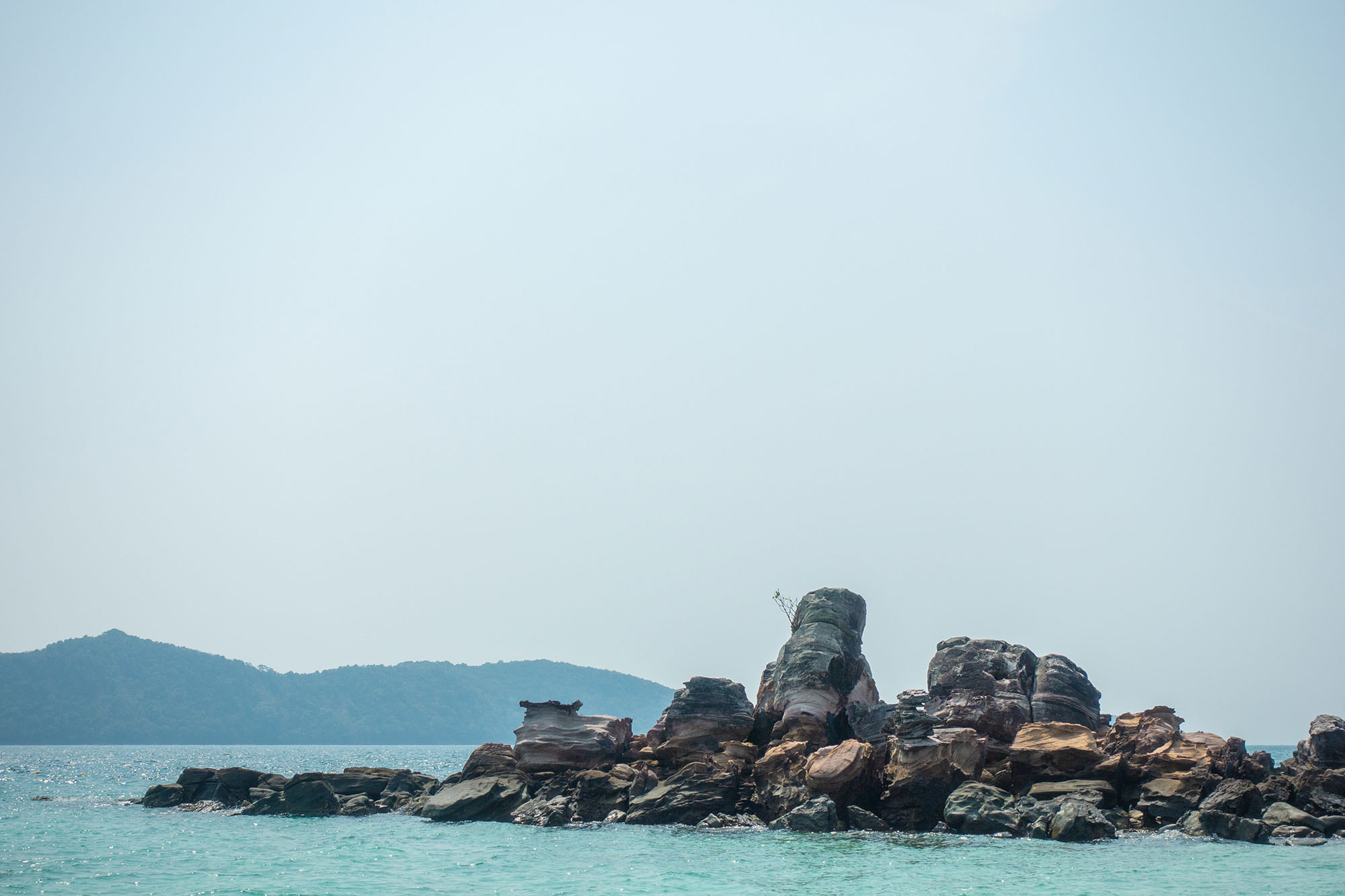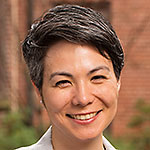
When I announced I was leaving my last job for a new one, one of my colleagues asked, “What is your favorite Bible verse?” I thought about it, as I don’t do single verses, having long been resistant to anything that smacks of eisegesis. “I don’t really have one. But I love the book of Ecclesiastes.”
At my goodbye party, he presented me with Ecclesiastes 1:2 written in Korean calligraphy. It hangs in my office where I now work in reproductive justice.
“Meaningless! Meaningless!” says the Teacher.
“Utterly meaningless!
Everything is meaningless.”
One of my ambivalences as a North American Christian is that I live in the tension that everything is meaningless, yet simultaneously fraught with hope and wonder. After all, we believe the resurrection was the ultimate “no” to death. What greater hope can there be for a people whose faith points to a way of being that upends the death-dealing ways of our broken world, where we are invited to live in new and different ways in defiance of destruction?
• • •
I have a friend in the social justice movement who lives with bipolar disorder, and is known to post helpful dispatches for all of us who are his friends and followers. He reminds us to breathe, drink a glass of water, get enough sleep, and make sure to eat if we’re hungry. We are all being battered by a government that is one of the most chaotic many of us have ever lived through, a culture increasingly divided by our political and religious convictions, and Russian trolls. Yet we are also seeing a resurgence in political activity and activism, with people who are newly practiced at attending rallies and encouraging others to vote. Those who are veterans need to be sure we are well enough to continue to show up to refreshed movements.
In my work of fighting for reproductive justice for Asian American and Pacific Islander (AAPI) women, it seems like we are assaulted on all sides. We see statewide reversals in abortion care access; cruel and inhumane crackdowns on immigrants and refugees courtesy of the federal government, with threats of more detentions and deportations; a Justice Department walking the country back from human rights and civil rights gains; and the overturning of gains for equal pay.
This era feels especially bad. But it has felt bad before. I have long felt a sort of meaninglessness in our society.
What’s the point of hoarding money if there is a market crash or women lose the right to work and hold property? What’s the point of rising to the top of an industry that is about information or intellectual pursuits when my lack of sewing skills means I wouldn’t be able to keep myself clothed if forced to live off the grid? What is the point of bringing people into the faith if we can’t be bothered to end the systemic and persistent hunger experienced by so many children around the world? Why plan for that vacation next year if the current president seems determined to get us into a nuclear war? It all seems hopeless.
Having hope, as a Christian — in times of such great despair in Syria, in undocumented communities, in Flint, in Puerto Rico — seems overly simplistic.
I have never believed the claim that God doesn’t give us more than we can handle. Not all of us can handle what life throws at us. Some of us perish under genocide, or don’t survive intimate partner violence. Some of us don’t have access to the health care we need. Some of us end our own lives. In trying to make sense of the ongoing destruction surrounding us, we construct bad theologies that place judgment on the people who break under destruction instead of confronting the destruction itself.
This is not a matter of whether or not one has enough hope or faith; it’s a matter of the world not giving a shit about making that theological claim a true one. The interests of the powerful do not align with life-giving practices for all. God’s intentions for the whole are twisted to mean safety and security for those who can afford it, or those who are pale enough for it, or those who have the right papers to prove it.
And yet we do not live in an either/or. We live in a both/and. Everything is meaningless, yet fraught with meaning. Engaging in social justice work is to understand we make progress on one issue and see the gains we made on another issue walked back. Nothing is a straight line.
Some of us who are AAPI are particularly shaped by devastation. Many of us are here because war destroyed the lands of our ancestors. Too many of us have family stories of loss caused by war, xenophobia and racism, occupation, and bad family situations. We live in the U.S., surviving exclusion, denial of citizenship and property rights, hate crimes, and vandalism.
We are nothing if not a people who have somehow managed to survive horrible destruction. Survival doesn’t mean recovery. Recovery doesn’t mean bouncing back. We never become our old selves. We become ourselves made new, with scars that can last generations.
We are a people made for hope, but this is so hard for me to stomach. So many people are being sacrificed by our current social arrangement. It’s one thing for me to have hope; I am an employed English-speaking citizen with a deep social network whose home is a safe place. It’s almost a cliché for someone like me to hold onto hope.
But the truth is we Christians have a faith shaped by a tiny community determined to live differently in the midst of empire, according to the teachings of a rebel carpenter from a backwater town. We hold that in tension with the fact that our faith was also shaped by an empire, who turned that spark of hope from defiance into submission.
This tension between hope and despair, between survival and destruction, between a faith shaped by oppression and an oppressive faith — this is where our faith lives.
As a die-hard Trekker growing up, I found particular resonance with the Klingons of “The Next Generation”, who seemed to live by the tension of enjoying food, drink, and the glory of battle. Deep down, I’m the same. I love the struggle, no matter the results, and I love to eat well with friends, too.
In truth, I live by Ecclesiastes 2:24-25 (NRS): “There is nothing better for mortals than to eat and drink, and find enjoyment in their toil. This also, I saw, is from the hand of God; for apart from [God] who can eat or who can have enjoyment?”
To live Ecclesiastes is to know meaninglessness and find joy and meaning in the midst of it.
We play baseball in internment camps. We create new families in new countries and remember the ones we lost. We continue to celebrate the new year, harvest festivals, and special days in a country that will not recognize them. We sing, make art, write plays, design monuments, and tell stories of our unfolding histories in this country. We find work, and that work gives us purpose. We make families out of the friends who accept us when our own families will not, and delight in who we have around us. We serve each other too much food at every gathering.
God gives us each other. And when we choose to show up for each other, we stand a chance to endure the unimaginable.
Grace Lee Boggs said it best: “A revolution that is based on the people exercising their creativity in the midst of devastation is one of the great historical contributions of humankind.”

The Reverend Laura Mariko Cheifetz is an ordained Teaching Elder in the Presbyterian Church (USA). She has served in theological education, religious publishing, and social justice advocacy, and provided leadership in the national and international church. She is also the co-author and editor of “Church on Purpose” and contributor to “Race in a Post Obama America, Leading Wisdom, and Streams Run Uphill”. She is a contributing editor to Inheritance magazine. She lives in Decatur, GA with her partner and their two Shih Tzus.

Wonho Frank Lee is a freelance photographer who primarily shoots for Eater LA and recently received his MFA from Cal State LA. Follow him on Instagram @WonhoPhoto.